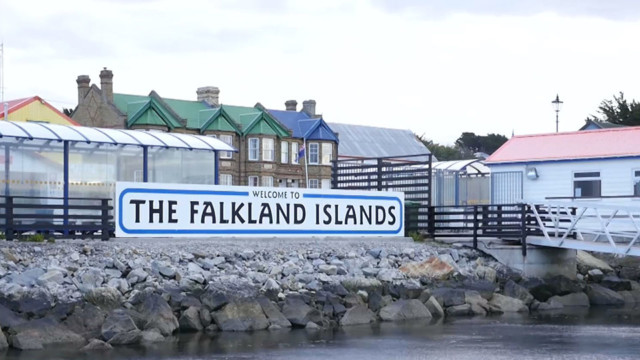Argentina calls them the Malvinas the United Kingdom, and local community, call them the Falklands.
The islands in the south Atlantic are a point of dispute between the two countries, in particular since their 1982 conflict. But since diplomatic relations started to improve in 2016, there are talks on a number of economic issues, the vital fishing industry being one of them.
CGTN’s Joel Richards reports.
The Falkland Island Fisheries team of marine biologists monitor squid and other fish stocks in the southwest Atlantic. Recently, they’ve been seeing a worrying trend.
“The problem is that of course with increasing amount of fishing vessels on the high seas the stock of squid and of hake as well are becoming volatile,” said Alexander Arhkipkin, Head Scientist at the Falkland Island Fisheries. “It’s a huge risk of over-fishing the stock and complete crash of stock, which is one of the most important in the world.”
There are agreements between fishing nations around the world that look to manage and conserve international fisheries, but this part of the south Atlantic is the only region in the world not to have one of those agreements, the reason – the relationship between Argentina and these islands.
Since the 1982 war, these islands have had a tense relationship with nearby Argentina. The situation deteriorated under President Cristina Fernandez de Kirchner, but a 2016 declaration signed with the Mauricio Macri government pledged to improve the economic relationship.
In the joint communique, the two countries agreed to remove ‘all obstacles limiting the economic growth of sustainable development of the Falkland Islands, including in trade, fishing, shipping and hydrocarbons.’
“We are not going to talk about sovereignty, lets put it on the top shelf, we are not talk about it, but let’s talk about other things, let’s talk about exchanging fishing data so those fish that move between Argentine waters and the Falkland waters are looked after and not overfished.” said Assembly Member Barry Elsby.
Fishing is vital to the livelihood of the community. In the late 1980s, fishing licensing began, and local businessman Stuart Wallace said the impact on the local economy was immediate.
“Within a year of the declaration of the fishery, the revenue of the government went from something like four or five million, to something like 40 million, it was almost immediate, immediately beneficial. Our prospects were transformed by the declaration of the fisheries.” said fisherman Stuart Wallace.
So protecting fish stocks is vital for these islands, but also for Argentina which is a major exporter. Squid and other fish from this region end up in restaurants across Europe and Asia.
To ensure that continues, scientists are hopeful the politicians will reach an agreement in talks which are due to take place in May in Buenos Aires.
Mark P. Jones gives insight about the economy of the Falklands/Malvinas Islands
CGTN’s Rachelle Akuffo spoke to Mark P. Jones, the Joseph D. Jamail Chair in Latin American Studies at Rice University about the economy of the Falklands/Malvinas Islands.
 CGTN America
CGTN America

